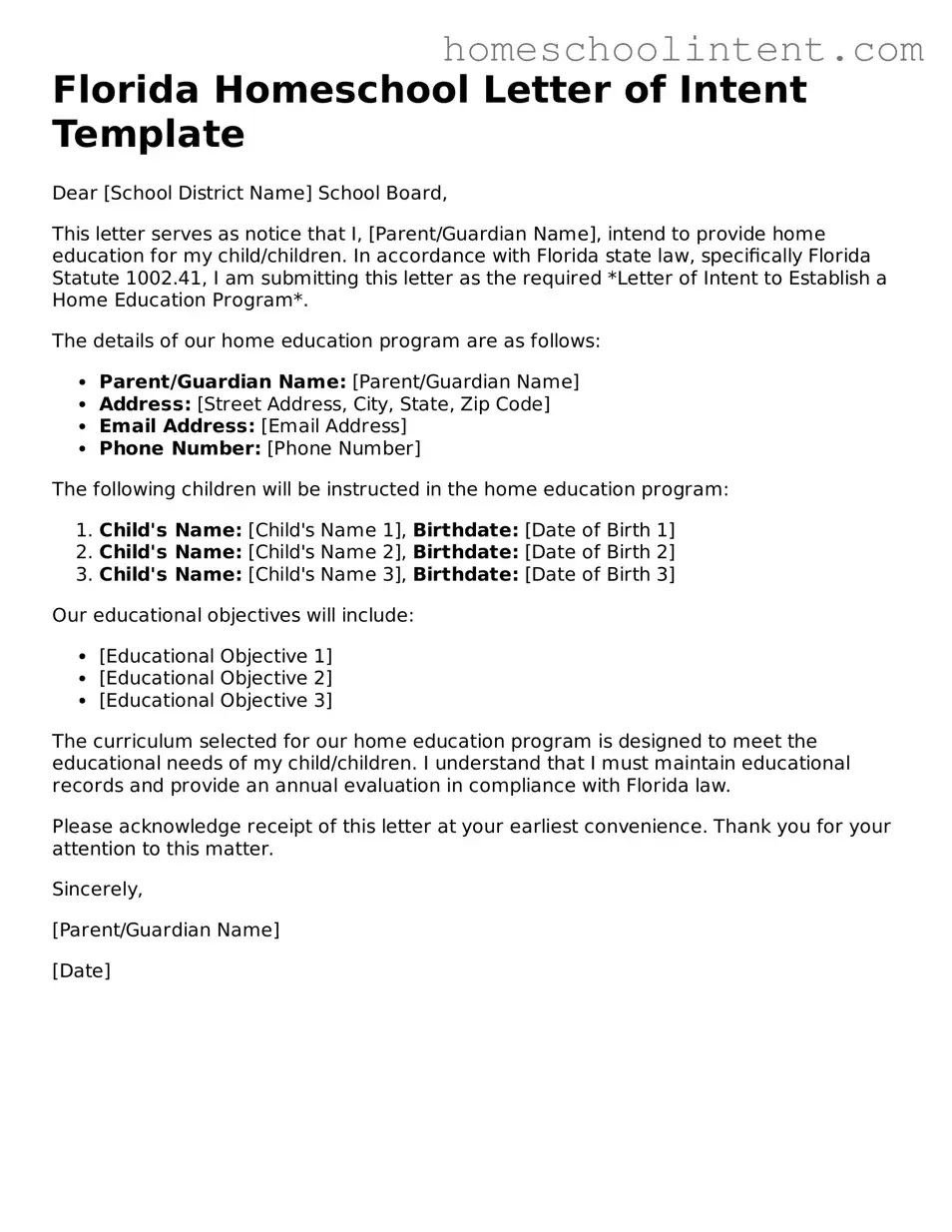Documents used along the form
When families decide to homeschool in Florida, submitting the Homeschool Letter of Intent is just the first step. Several other forms and documents may be necessary to ensure compliance with state regulations and to facilitate a smooth homeschooling experience. Below is a list of commonly used documents that often accompany the Homeschool Letter of Intent.
- Educational Plan: This document outlines the curriculum and educational goals for the school year. It helps parents stay organized and ensures that they cover required subjects.
- Attendance Records: Keeping track of daily attendance is essential. This record demonstrates that the student is engaged in learning and meets the state’s educational requirements.
- Progress Reports: These reports provide an overview of the student’s academic progress. They can be shared with evaluators or used to assess whether the educational plan is effective.
- Portfolio of Student Work: A collection of the student’s completed assignments, projects, and assessments. This portfolio showcases the student’s learning and can be beneficial during evaluations.
- Evaluation Report: At the end of the school year, an evaluation of the student’s progress is often required. This report can be completed by a certified teacher or through standardized testing.
- Notification of Termination: If a family decides to discontinue homeschooling, this document formally notifies the school district of the termination of the homeschool program.
Each of these documents plays a crucial role in the homeschooling process. They not only help parents stay organized but also ensure compliance with Florida’s educational standards. By maintaining accurate records and assessments, families can provide a robust educational experience for their children.
